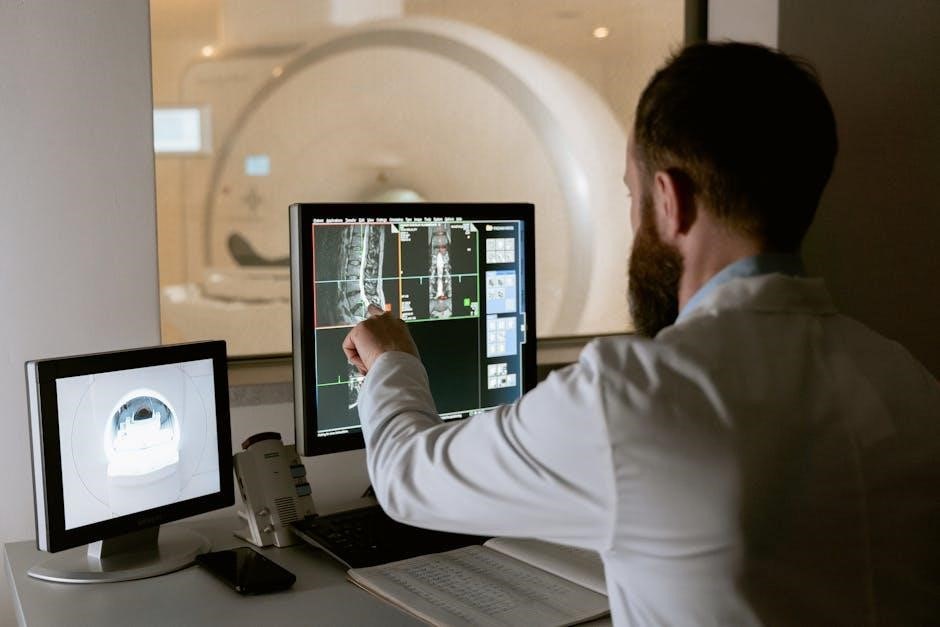The introduction to MS computer science entry test MCQs PDF provides information on various computer science topics and questions for preparation purposes online easily always available.
Overview of the Test
The test is designed to assess the candidate’s knowledge and skills in computer science, with a focus on multiple-choice questions.
The test covers a wide range of topics, including programming languages, data structures, algorithms, and computer systems.
The questions are designed to test the candidate’s problem-solving skills, analytical thinking, and ability to apply computer science concepts to real-world problems.
The test is typically divided into sections, each with a specific time limit and a set of questions.
The candidate’s performance is evaluated based on their ability to answer the questions correctly and complete the test within the given time frame.
The test is an essential part of the admission process for many computer science programs, and it plays a significant role in determining the candidate’s eligibility for the program.
The test format and content may vary depending on the institution and the specific program.
The candidate can prepare for the test by studying computer science topics and practicing with sample questions.
The test is a challenging and competitive exam that requires careful preparation and practice.
The candidate’s score is used to determine their ranking and eligibility for the program.
The test is an important step in the admission process, and it provides a fair and objective assessment of the candidate’s knowledge and skills.

Importance of MCQs in Computer Science
MCQs play a crucial role in computer science education and assessment methods online always.
Weightage Distribution
The weightage distribution of the entry test is divided into sections, with English and Mathematics carrying 25 marks each, and Computer Science carrying 50 marks, making it a crucial part of the test. The distribution of marks is designed to assess the candidate’s knowledge and skills in each area. The test is structured to evaluate the candidate’s ability to apply theoretical concepts to practical problems. The weightage distribution is as follows: Section I ⏤ English, Section II ー Mathematics, and Section III ⏤ Computer Science, with a total of 100 marks. The candidate’s performance in each section is evaluated separately, and the overall score is calculated based on the weightage distribution. This distribution is designed to ensure that the candidate has a strong foundation in all areas of the test.

Computer Science MCQs with Answers
Computer science MCQs with answers are available online for test preparation purposes always easily.
Topics Covered
The topics covered in the MS computer science entry test MCQs PDF include programming languages, hardware, and software engineering.
The PDF guide covers various topics such as Microsoft Word, MS Excel, and MS Access, as well as basic computer-related questions and answers.
Additionally, the MCQs cover topics like binary coded decimal, memory types, and hard disks, providing a comprehensive review of computer science concepts.
The questions are designed to test the student’s understanding of computer science fundamentals and their ability to apply them to real-world problems.
The topics covered are relevant to the field of computer science and are designed to prepare students for the entry test.
The PDF guide is a valuable resource for students preparing for the MS computer science entry test, providing them with a thorough understanding of the topics covered;

Preparation Materials
Preparation materials include online resources and study guides for MS computer science entry test mcqs pdf available easily always online now.
PDF Guides
PDF guides are essential study materials for MS computer science entry test mcqs pdf, providing comprehensive information on various topics, including computer science fundamentals, programming languages, and software engineering. These guides are available online and can be easily downloaded, making it convenient for students to access and study them. The PDF guides cover a wide range of topics, from basic to advanced levels, and include practice questions, quizzes, and mock tests to help students assess their knowledge and prepare for the actual test. Additionally, the guides provide detailed explanations, examples, and diagrams to help students understand complex concepts and retain information better. Overall, PDF guides are a valuable resource for students preparing for the MS computer science entry test mcqs pdf. They offer a structured and organized approach to studying and can help students achieve their goals.
Sample Questions
Sample questions help students prepare for the MS computer science entry test mcqs pdf with online resources and study materials always available easily.
ASCII Code
The ASCII code is a character-encoding scheme used to represent text in computers, and it is an important topic in computer science. The ASCII code is used to assign a unique numerical value to each character, including letters, digits, and symbols. This code is widely used in computer programming and is an essential concept for students preparing for the MS computer science entry test. The ASCII code is a 7-bit code, which means it uses 7 bits to represent each character. The code consists of 128 unique characters, including 26 letters, 10 digits, and various symbols. Understanding the ASCII code is crucial for students who want to pursue a career in computer science, as it is used in many programming languages and is an important concept in computer programming. The ASCII code is a fundamental concept in computer science.

Entry Test Sample for MSCS Program
Entry test sample for MSCS program includes computer science questions and topics for preparation purposes online easily always available everywhere now.
Section Titles
The section titles for the MS computer science entry test MCQs PDF include English, mathematics, and computer science, which are the main areas of focus for the test.
The section titles are divided into three main categories, with English and mathematics each accounting for 25% of the total weightage, and computer science accounting for 50%.
The section titles are designed to test the candidate’s knowledge and understanding of the subject matter, as well as their ability to apply that knowledge to solve problems.
The section titles are an important part of the test, and candidates are advised to familiarize themselves with the format and content of the test in order to prepare effectively.
The section titles provide a clear outline of what to expect from the test, and help candidates to focus their preparation on the most important areas.
Generative Models for Educational Task Texts
Generative models automatically create educational task texts for computer science students online easily always available every day.
Research in Computer Science
Research in computer science is a vital component of the field, driving innovation and advancement in areas such as artificial intelligence and machine learning.
The study explores the potential of modern generative models for automatically generating educational task texts, building on prior research in computer science.
This research has numerous applications, including improving student learning outcomes and enhancing the overall educational experience.
Computer science research is constantly evolving, with new breakthroughs and discoveries being made regularly.
The field of computer science is vast and diverse, encompassing a wide range of topics and specialties.
Researchers in computer science use a variety of methods and techniques to conduct their studies, including experiments, simulations, and data analysis.
Overall, research in computer science plays a critical role in shaping the future of technology and society.
OpenDoors Subjects
OpenDoors subjects include Applied Mathematics and Artificial Intelligence, Biology, Business, and Chemistry, covering various fields of study and research areas online always.
Applied Mathematics and Artificial Intelligence
Applied Mathematics and Artificial Intelligence is a subject that combines mathematical techniques with artificial intelligence methods to solve complex problems. This field of study involves the use of mathematical models and algorithms to develop intelligent systems that can learn and adapt to new situations. The application of applied mathematics and artificial intelligence is vast, ranging from computer vision and natural language processing to robotics and expert systems. Students who pursue this subject can expect to gain a deep understanding of mathematical and computational techniques, as well as the ability to design and develop intelligent systems that can solve real-world problems; The study of applied mathematics and artificial intelligence requires a strong foundation in mathematics and computer science, as well as a willingness to learn and adapt to new technologies and techniques.
